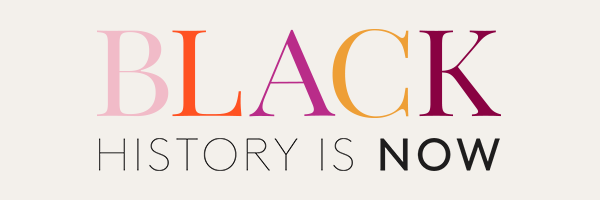Why We’re Celebrating Black Britain & Its Huge Influence In Culture Now
What a time for the culture! What a time for black talent! Did anyone else feel the shift in conversations about black empowerment this year? Because I can hear black British voices, I can see our experiences and I can feel our presence more than I have before.
Though it’s at this time of year that we’re invited to look back at the archived contributions of black Britons – at our allocated point of reflection, about which I've long had mixed feelings – we should also recognise that we needn’t look too far back to see black history in action.
AdvertisementADVERTISEMENT
The incredible Dina Asher-Smith just took home silver in the 100m and became the first British woman to win a World Championships sprint medal in 36 years, and the first black British woman too. Over the summer, Stormzy was once again hailed as a beacon of black excellence with his headline-making Glastonbury performance and game-changing initiatives to support young black people in higher education and creative industries. Some of the most exciting, in-demand names on the literary scene right now are young black British women whose writing speaks not just to those of us who have gone unheard, but to people beyond our communities as well. With a recently announced black history series A Quick Ting On on the horizon, next year looks even more exciting for black British authors on the come up, too.
Twenty-one-year-old rapper Dave won the Mercury Award for his debut album Psychodrama. Top Boy was given a global platform and took an aspect of black British experiences from Channel 4 over to Netflix and Malorie Blackman’s Noughts & Crosses, the first book I felt spoke directly to me as a young black British teenager, is soon to hit TV screens across the UK.
It’s exhilarating and it’s eye-opening. It’s also just the tip of the iceberg when it comes to the incredible things that the black British community has given to society over the years. Our influence on culture has never been so impactful. We’re seeing it on screen, on the radio, on Twitter and beyond. And while these accolades are of course noted in the media as they come – yes, the fact that diversity and representation are still considered buzzwords definitely plays a part – it’s almost too easy to overlook the collective and continuous impact that a group so historically dismissed is making to society as we all know it now.
AdvertisementADVERTISEMENT
This October Refinery29 is using Black History Month to play the movement forward. Be it music and television or motherhood and education, we’re highlighting the strength, beauty and power in black Britain’s recent history, and how it's shaping black Britain’s future.
Thanks to the effort and hardship endured by generations before us, the UK’s black community continues to grow and thrive. There are two sides to this coin, though. We’re still living in a period of 'firsts', which means that we’re not where we need to be just yet. There are the obvious systemic frustrations, like the government's wildly misguided use of chicken boxes in its #knifefree campaign, or the fact that the BBC opted to discipline presenter Naga Munchetty for calling out Donald Trump's racism. But there are also overlooked realities such as the Black Cultural Archives in Brixton being the only national heritage centre dedicated to Britain’s African and Caribbean people. So we’ll be speaking to the women taking it upon themselves to archive their experiences and document black British history in a way that we’ve not previously been afforded.
You can look forward to hearing from some of the UK’s most beloved black men about the black women they admire, because although black British visibility is certainly on the up, there’s still an unhealthy attitude and important conversation rumbling within the community about the erasure of black women in particular. We've already asked where the black romance is hiding in British TV and penned a love letter to the 'token' black women in our favourite '90s and '00s TV shows, but there's a lot more to unpick in how black women do (and don't) feel represented.
A few young women will be having frank conversations with their mothers about race, what black womanhood means to them and how their experiences have shaped who we are and who we hope to become. Elsewhere we’ll be doing a deep dive into one of black Britain's greatest exports: music. Black British voices are all over the charts and the genres we've led have entered the mainstream in a big, exciting way so we're going to take a look at the monumental albums that got us there.
It goes without saying that black history is crucial, and its impact is far more expansive than one month of the year can possibly account for. But our black heritage is an ongoing journey from which we have to look up and forwards, just as we turn back to it. It's complex and multifaceted, as is the concept of black Britishness itself. But it's also beautiful, powerful and shaping the world we live in every day. Join us in celebrating the people using the foundations laid before us to champion the things that make us unapologetically black and distinctly British in 2019.
AdvertisementADVERTISEMENT







